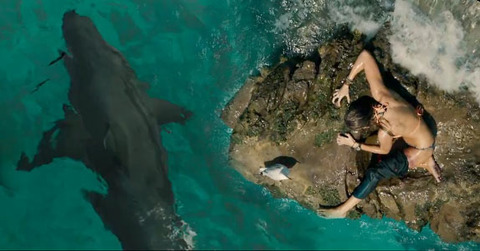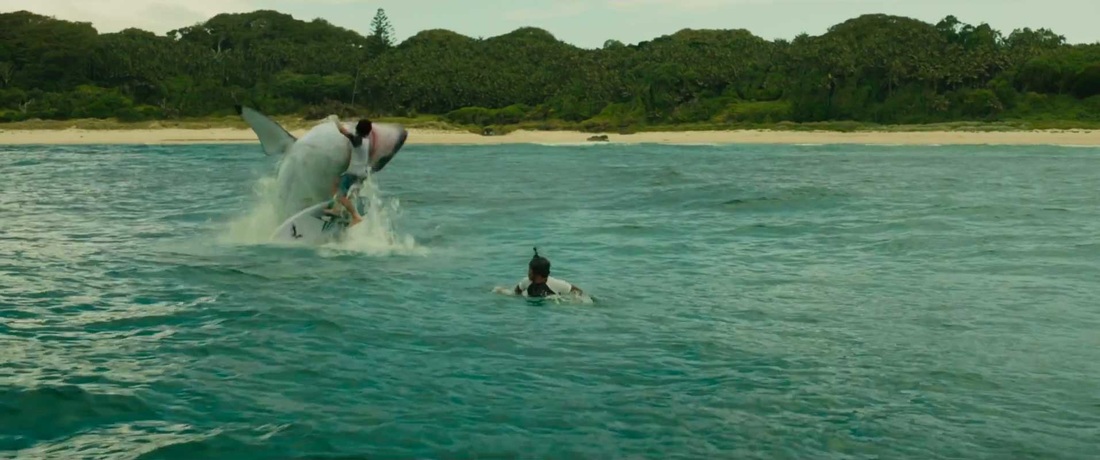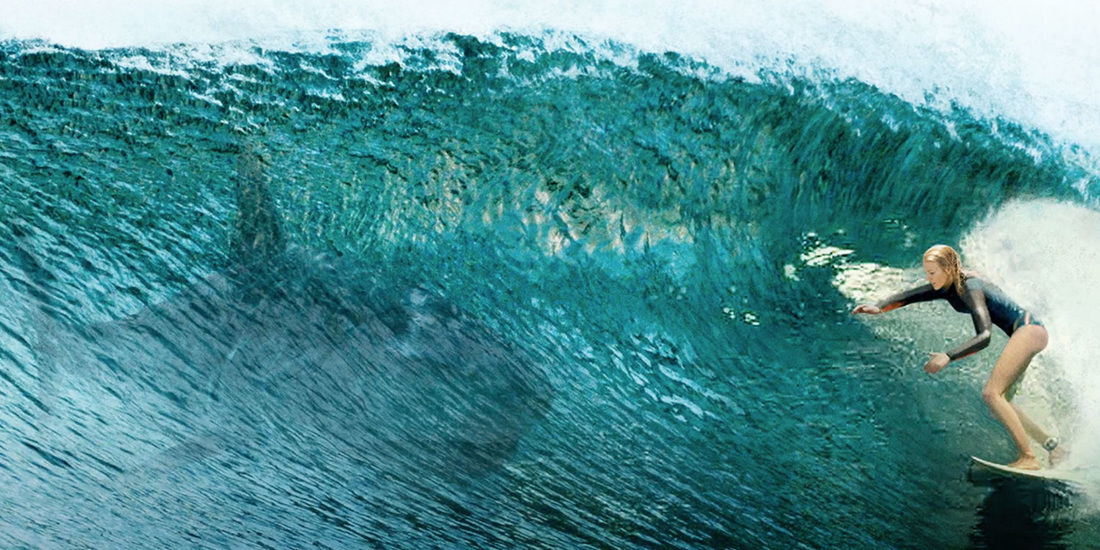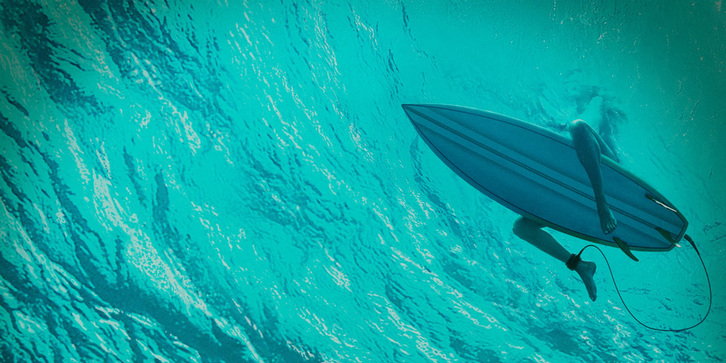 Jaume Collet-Serra's The Shallows is the perfect antidote for the summer blockbuster slog full of bombastic action and whiplash narratives, being a stripped-down, white-knuckle thriller that makes atmosphere and tension a high priority, leading to a diabolically entertaining tale of self-sufficiency. The story is simple- A mere 200 yards from shore, Nancy, an American surfer who is all alone, is attacked by a great white shark. Able to seek refuge on a small island that rises during the low tide, Nancy finds herself in a battle with time, losing blood quickly, with 200 meters of water being the difference between her living and dying. Tight and tense, The Shallows at its core is a story of self-sufficiency, one where Nancy finds herself confronted by death, forced to fight back in order to survival. Just like everyone's favorite shark film, Steven Spielberg's Jaws, the shark in Jaume Collet-Serra's The Shallows takes on borderline supernatural qualities, being a menacing, blood thirsty creature that borders on sadistic instead of territorial. While this may bother some viewers, it's important to remember that The Shallows' intentions are based more in horror than factual zoology, and Jaume Collet-Serra's The Shallow delivers here, being a film full of tension and thrills in its tight, under 90 minute, package. One of the main reasons why The Shallows works so well is the skilled direction by Jaume Collet-Serra, a filmmaker that takes the time to fully understand the environment he has to work in. On first arrival at the small, secluded beach, the filmmakers fully embrace the perspective of their main protagonist, exhibiting how this setting is Nancy's paradise, with the crystal clear water and the sound of the waves providing a therapeutic, calming sense of peace. The secluded nature of this beach is Nancy's ally, taking her away from her troubles and connecting her closer to her mother, a woman whom we learn loved this same location and has recently succumbed to her fight with cancer. Jaume Collet-Serra uses all sorts of cinematic devices to establish this secluded setting with slow motion photography and overhead wide-lensed compositions, even establishing the above water vs. below water dynamic early on, giving the audience a feel for the secluded, tranquility of this setting. When the shark attack happens The Shallows quickly transforms, showing how quickly this perceived paradise can become one of pure terror, yet Collet-Serra's cinematic tools barely change, with the same decisions that were once used to exhibit peace and tranquility now used to evoke a sense of fear and terror. Those overhead shots that captured the quiet soothing paradise now elicit the pure terror of Nancy's seclusion, one where her and her alone must fight to survive against a hungry, massive great white shark. Another great use of the environment is how Collet-Serra uses the bobbing waves to obstruct his main character's sight lines, with the oscillating sea evoking a sense of the unknown where Nancy, and the audience, routinely lose eyesight of the threat that is right in front of them i.e the shark. The Shallows does have its issues, one of which is its borderline comedy of errors, where the film goes a little too heavy on doubling down on Nancy's misery, injecting obstacles to her struggle that feel inorganic or forced, even in ways that border on laughable, like the writer was sadistically coming up with ways to emotionally torture this character. This is particularly apparent towards the final act, where Nancy finds herself confronted with a comedy of errors that include a random infestation of jellyfish and faulty flares, but I'd be hardpressed to say it took me out of the film. Lean, mean, well-directed, and full of tension from start to finish, Jaume Collet-Serra's The Shallows is big, dumb fun, a thrilling survival horror film that is probably the best "shark" film to come out in over a decade.
0 Comments
Leave a Reply. |
AuthorLove of all things cinema brought me here. Archives
June 2023
|



 RSS Feed
RSS Feed
